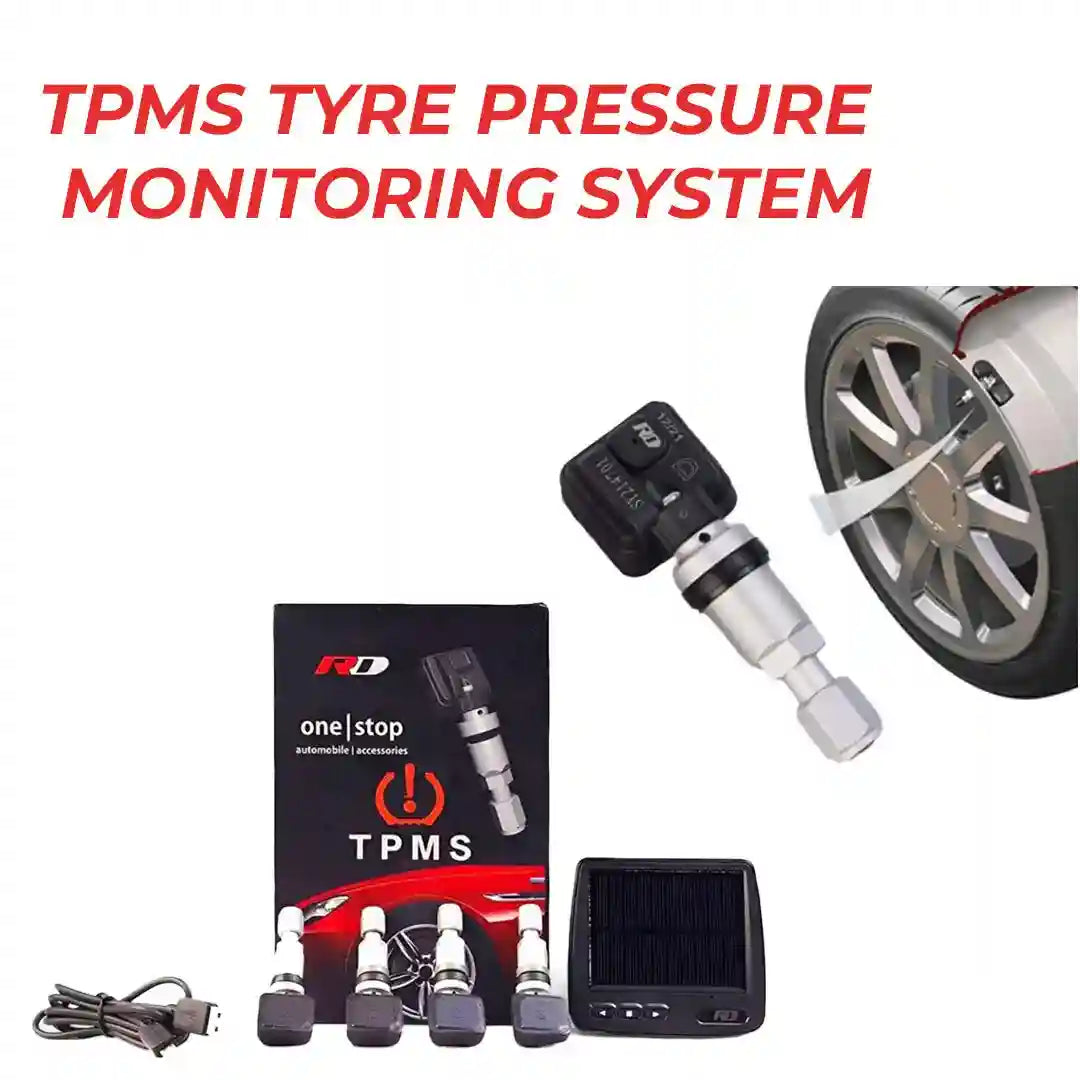
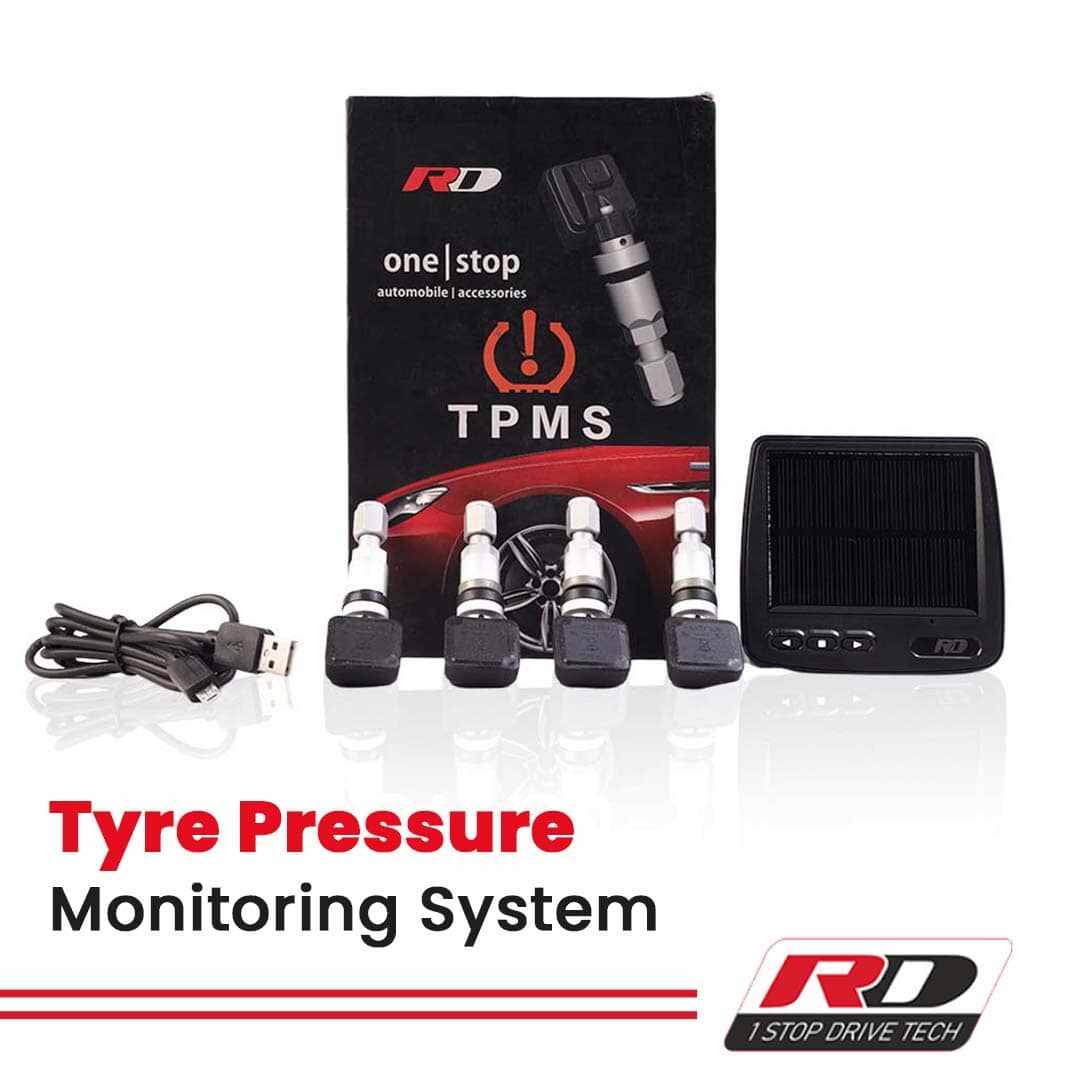
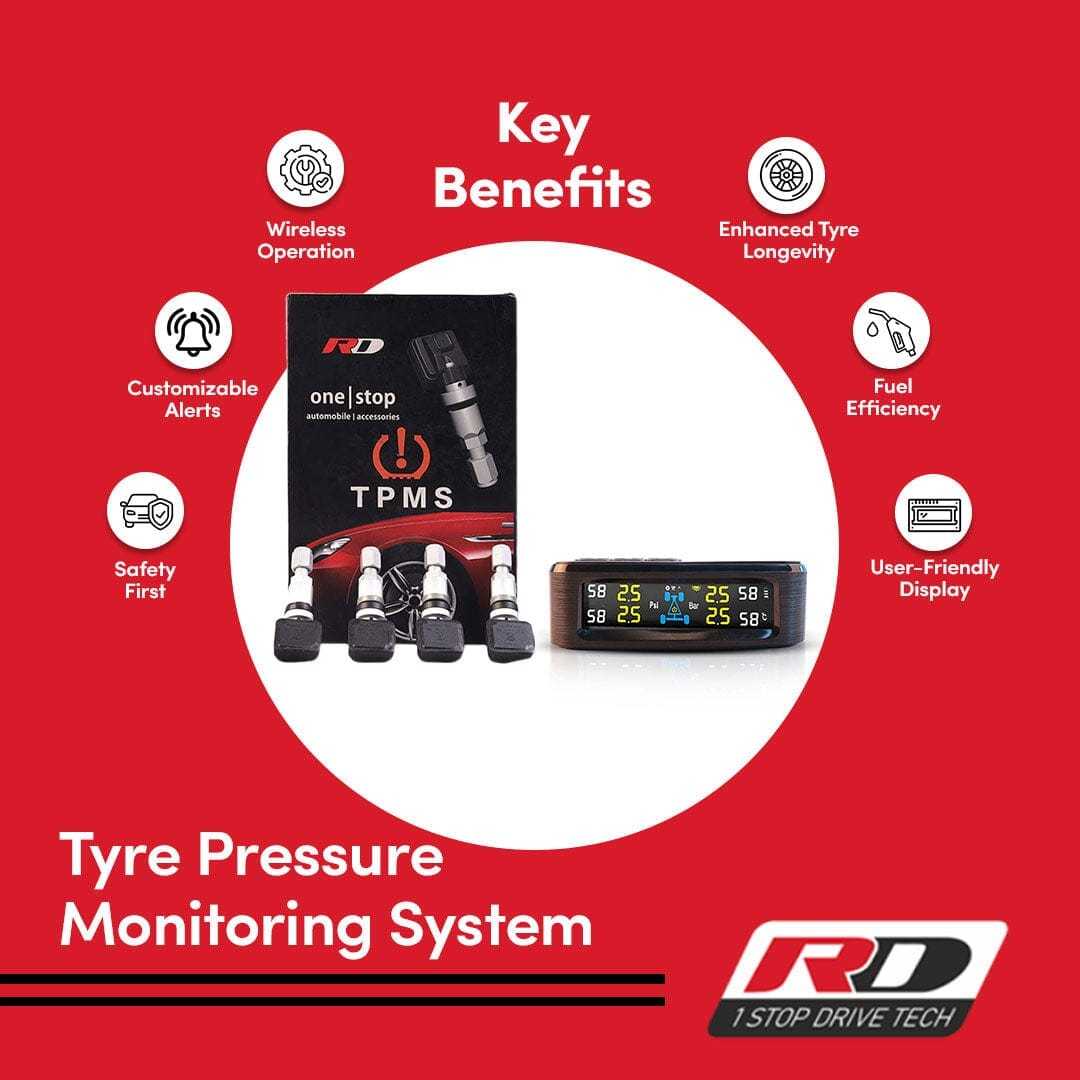
Product Details of Tpms Tyre Pressure Monitoring System
RD's Tyre Pressure Monitoring System (TPMS) provides real-time monitoring of tyre pressure and temperature for vehicles, enhancing road safety.
- With advanced sensors and seamless integration, TPMS alerts you promptly to low-pressure or flat tyres.
- By maintaining optimal pressure, TPMS improves handling, reduces wear, decreases braking distance, and boosts fuel economy.
- TPMS sensors are integral components of RD's system, ensuring optimal performance, safety, and efficiency.
How does RD TPMS Technology work?
TPMS for cars operates wirelessly, eliminating complex installations. Utilizing tpms sensors, it constantly monitors tyre pressures. When pressure changes significantly, alerts are displayed on the dashboard, ensuring prompt action for optimal safety.
Technical Details
- High pressure:3.0Bar(43Psi)
- Low pressure:1.8Bar(26Psi)
- High temperature:68°C
- External sensor working voltage: 3.0V CR1632 battery
- Internal sensor working voltage: 3.6V
- Sensor pressure range:0~3.5Bar(0~50Psi)
Package Contents
- 1 X Display
- 4 X Sensors
- 1 X Warranty Card
Key Features
Temperature Regulation
Automatically adjusts solar charging based on vehicle inside temperature, with a default alarm value of 65°C for stopping and 45°C for resuming charging.
Receiver Voltage
RD TPMS operates reliably at 5V, ensuring efficient performance and accurate monitoring of tire pressure and temperature for enhanced safety on the road.
Tyre Efficiency & Longevity
TPMS car system optimizes tire pressure, enhancing fuel efficiency and extending tire lifespan.
Key Benefits :
Wireless Convenience:
No need for wires or complex installations, ensuring hassle-free operation.
Safety Priority:
Promptly alerts drivers to under-inflated or overheated tires, mitigating accident risks.
Extended Tyre Life:
Maintains optimal tire pressure, enhancing fuel efficiency and maximizing tire longevity.
Optimized Fuel Economy:
Helps ensure optimal tire pressure for improved fuel economy and reduced tire wear.
User-Friendly Design:
Features a user-friendly display, customizable alerts, and wide vehicle compatibility for ease of use.
Visual Warnings:
Provides visual alerts of low pressure while traveling, preventing tire failure with early warnings.
Impported By: Rajatdeep Overseas Private Limited, Plot No.16, Sector 3, SIDCUL, Haridwar, Uttarakhand - 249403
For customer care contact us at: 09310044000, 011-41006200
For customer care address contact us at: 179-A, LIG, Yellow Apartment, Rajouri Garden, New Delhi - 110027
Why Choose Us
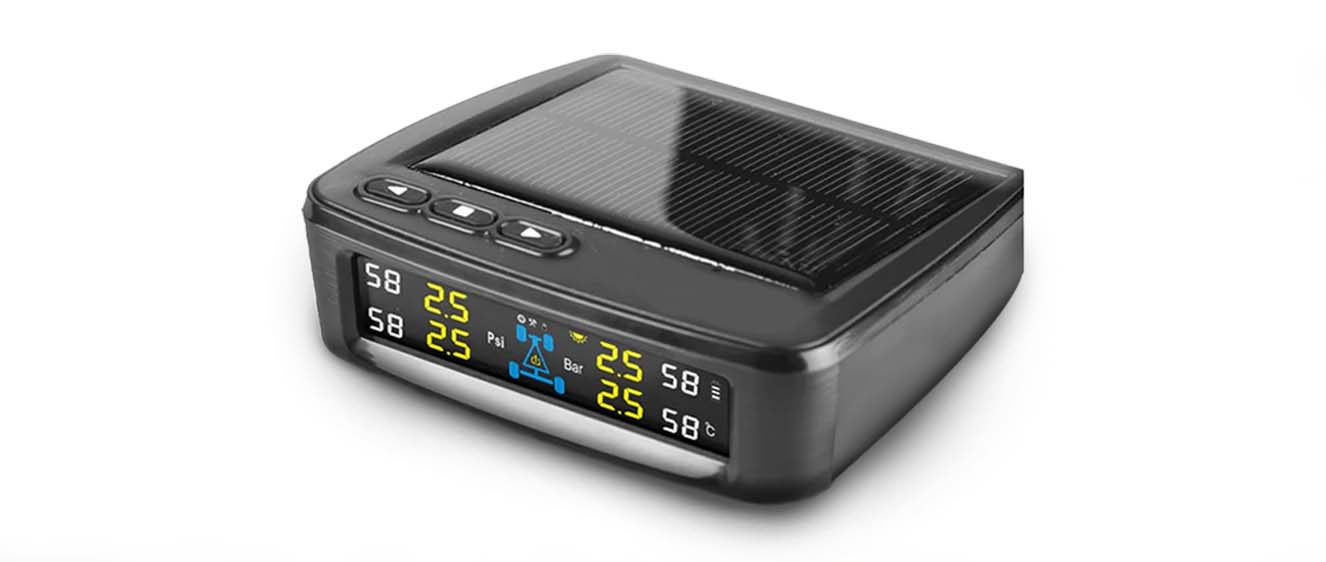
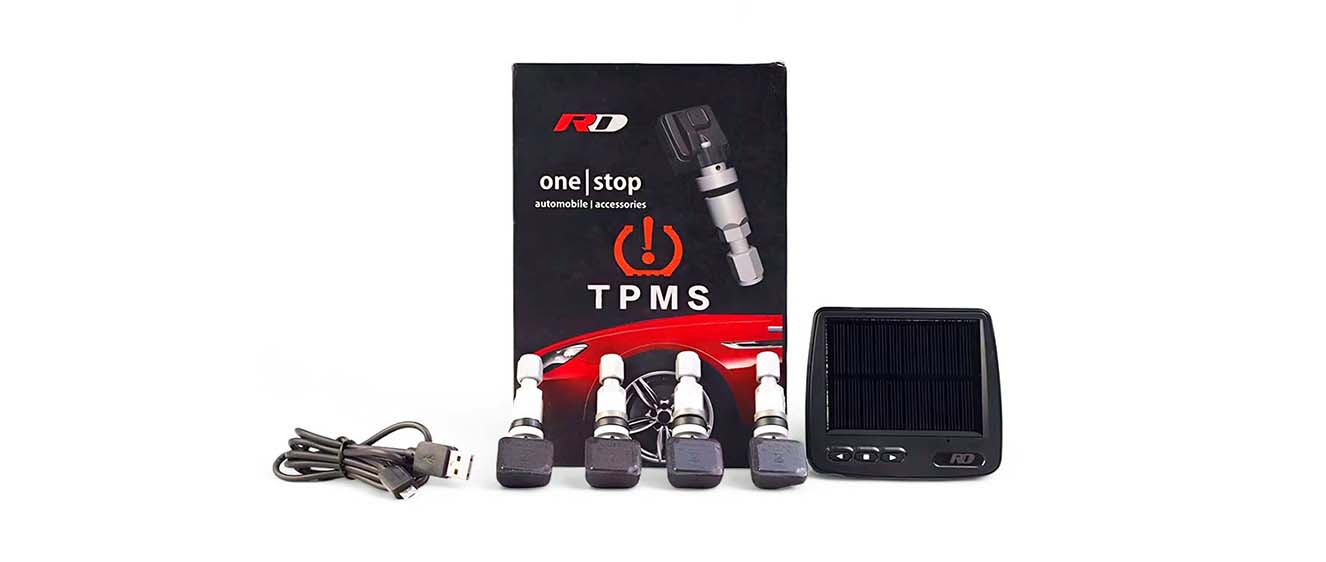
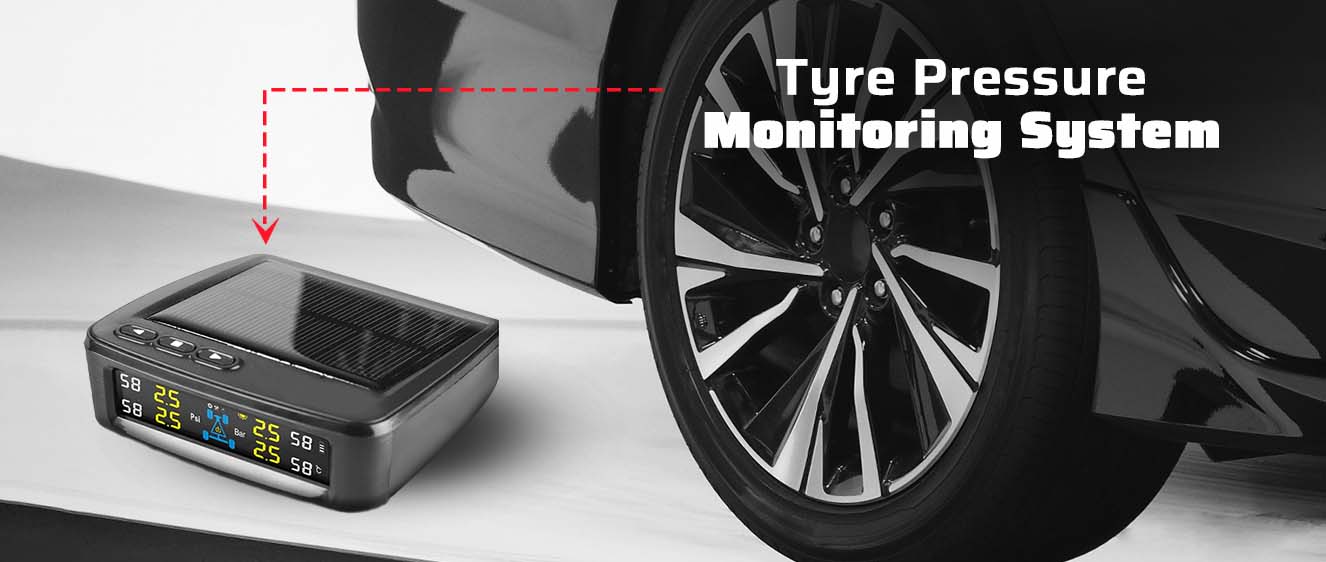
FAQs on RD Tyre Pressure Monitoring System
What is a TPMS sensor on a car?
The purpose of the tyre pressure monitoring system (TPMS) in your car is to warn you that at least one or more tyres, detected by TPMS sensors, are significantly under-inflated, possibly creating unsafe driving conditions.
How does the TPMS sensor work?
TPMS sensors monitor tyre pressure and transmit data to the car's computer to alert the driver of low pressure.
Can it detect a puncture or leak in the tyre?
Yes, the system can detect a puncture or leak in the tyre by monitoring changes in tyre pressure. It will alert the driver if there is a sudden pressure drop.
Do sensors require maintenance?
Our low-maintenance sensors require periodic battery checks and secure mounting on tyres for accurate readings.
Can TPMS be affected by changes in temperature?
Yes, extreme temperature changes can affect tyre pressure, which in turn can trigger alerts. It's normal for tyre pressure to fluctuate with temperature changes.








